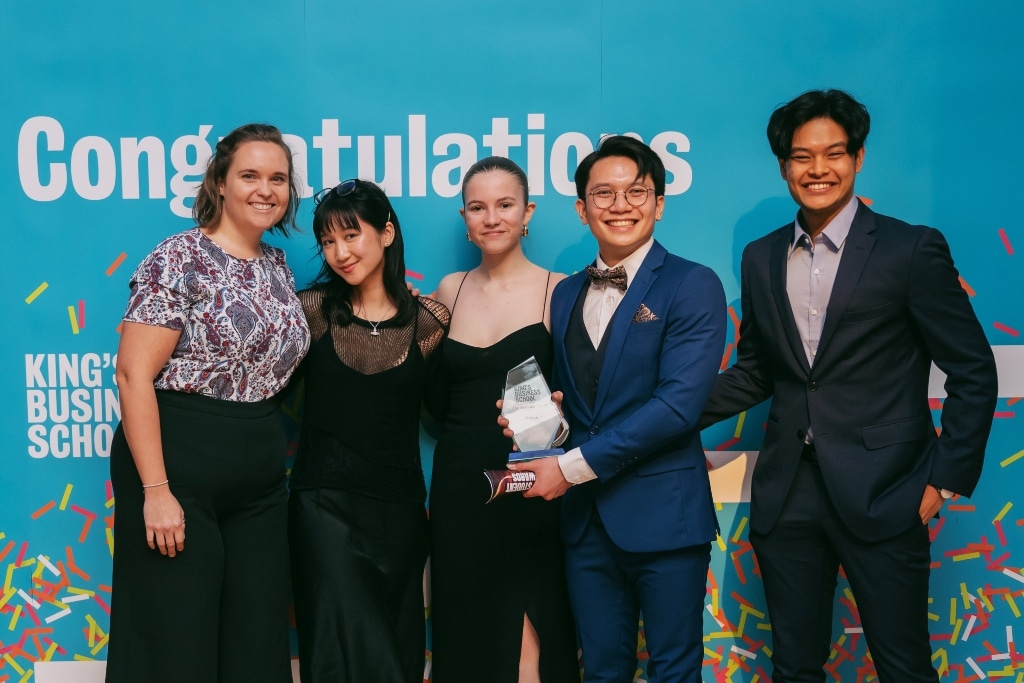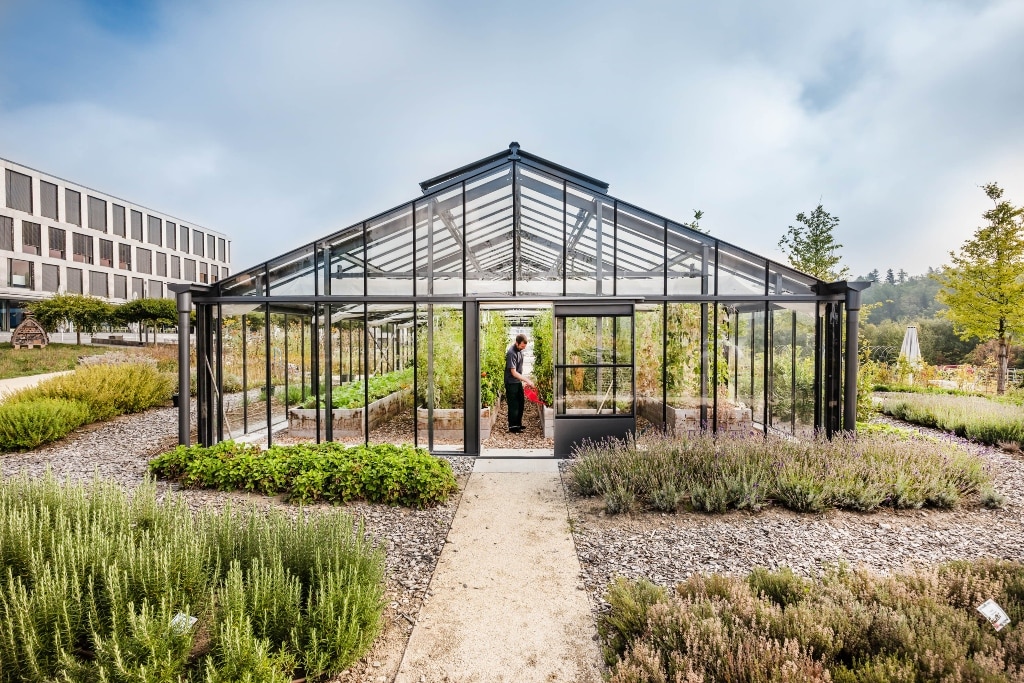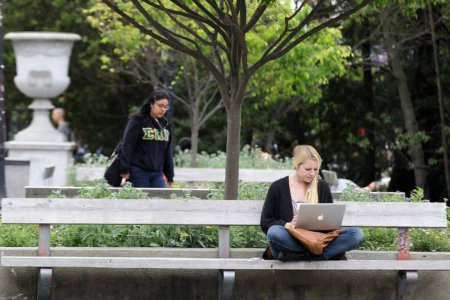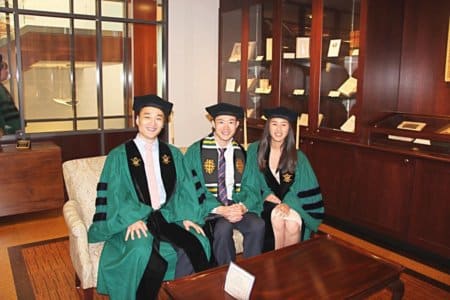
Forget reusable straws. What truly offers hope in a burning world is green business — specifically those originating from young people in the most populous continent in the world: Asia
“When one person starts doing something that has a snowball effect and spreads to people around them, and they start thinking why is that person doing that, and it can plant a seed in that person’s mind, and it can grow over time, and that is something I think we underestimate,” says Greta Thunberg.
Like the Swedish activist, many young people are heeding the call to tackle the climate crisis.
They too believe that the smallest of actions can make a big difference — like how one student from the Philippines is using coconuts to build a green business.

Samuel Tecuala (left) came up with his green business idea to produce coconut milk that reduces carbon footprint and is healthier for the public. Source: Samuel Tecuala
Moving towards a more sustainable future, one coconut at a time
Since young, Samuel Tecuala always had a dream of doing something big that would contribute to a more sustainable future.
“I wanted to be good enough to be able to go to a community and potentially help them make their lives better in some sort of way,” he shares.
And Tecuala found his purpose in coconuts — though he didn’t expect his bowel movements would have anything to do with it.
When he first arrived in the UK to pursue a bachelor’s in business management at King’s Business School, Tecuala was amazed at the vast variety of non-dairy milk choices.
“I actually only realised I was lactose intolerant when I moved to London. I realised I didn’t have to go to the bathroom four or five times a day. That’s actually not normal,” he says.
Shocked by the availability and benefits of coconut milk, this made him question why it wasn’t available in his home country, the Philippines.
He did some research and found that:
- up to 80% of Asians are lactose intolerant
- 99% of dairy milk in the Philippines is imported
- dairy creates two to five times more carbon footprint than any plant-based milk
- around three to six litres of water is needed to produce a litre of cow’s milk
High carbon footprint contributes to climate change, disrupts ecosystems, and pollutes our air.
High water use strains freshwater resources, depletes water supplies, exacerbates water scarcity, and disrupts ecosystems. “This is very environmentally damaging,” Tecuala says.
And harmful to humans too. Many children in the Philippines are micronutrient deficient due to the lack of calcium.
All of this gave Tecuala a light bulb moment.

Dehusk won the Innovator Award from King’s Business School for his green business idea. Source: Samuel Tecuala
He started his green business company Dehusk, a sustainable coconut milk producer.
Dehusk aims to deliver delicious, healthy, affordable and sustainable plant-based milk made from organic Laguna Tall (LAGT) coconuts, a traditional coconut variety in the Philippines.
After months of working with engineers in Singapore, balancing his academics and the pandemic, Tecuala was finally able to travel to Singapore at the end of 2021 to collaborate with Tetra Pak Singapore.
The resulting product is a barista-worthy coconut milk enriched with calcium, iodine, vitamin D, B2 and B12.

Green businesses will be a key driver in building a better tomorrow. Source: Torsten Blackwood/AFP
Asians are slowly accepting green business
In the next three years, 40% of consumers say they want to spend more on sustainable products.
And the report says Asians care about the environment just as much as the Western world. They care even more about health-related ESG matters.
This shift could be the after-effect of a pandemic that exposed how vulnerable and unequal certain societies are — which could be exacerbated as the planet heats up to a point of no return.
Many are worried. According to Google Trends, there was a staggering increase of over 4,550% in searches for “how to live a sustainable lifestyle” in 2020.
While the pandemic brought about many challenges, the bright side of the lockdown was that it gave us a glimpse of hope.
Air pollution reduced a lot. During lockdown, New Delhi and Mumbai recorded nearly 40% to 50% reduction in nitrogen oxide levels.

EHL is consistently ranked as the best hospitality management school in the world. Source: Emmett Coughlan
EHL Hospitality Business School, with its three campuses located in Switzerland and Singapore, has implemented various initiatives aimed to support local communities, promote sustainability and enhance digital learning.
The EHL Lausanne Campus has been designed and constructed as an environmentally-friendly campus, featuring new and renovated buildings that consume low amounts of energy.
The campus is equipped with geothermal probes, which extract heat from a depth of 800 metres, as well as an innovative system that recovers heat from wastewater.
Curriculum emphasises accountability for actions both within and beyond the classroom, ensuring that students are prepared to make positive contributions to the world.
“In one of my modules called corporate sustainability, we learned about sustainable business practices with a lot of case studies on what’s up and coming in hospitality businesses and where you’d see these types of initiatives being taken in hotels,” shares student Emmett Coughlan.
“I feel I have a responsibility to the society and the environment to incorporate such sustainable practices,” he says.

Emmett Coughlan (right) when serving National Service in Singapore. Source: Emmett Coughlan
Coughlan witnessed sustainable practices even during his time serving National Service in Singapore.
“Officers in our training programmes practise sustainable efforts. They don’t want anything to go to waste, so everything that is used has a purpose and will be used to the maximum capacity,” he says.
EHL has a sustainable week every year across its three campuses, where events and conferences and panel discussions are organised to help raise awareness of sustainability.
“Sustainability is more than just the environment; it is the people. It’s about the small actions we take every day to work towards a more sustainable future,” shares Coughlan.
The demand for more green business professionals
If you have plans to pursue or switch to a career that involves caring for the planet, you’ll be happy to know that LinkedIn states that the number of job postings in the green sector is increasing at a faster rate compared to the availability of skilled individuals in the same field.
According to the US Bureau of Labor Statistics, there will be an increase in employment opportunities across various fields related to environmental preservation and natural resource conservation.
In order for sustainable business models to become the new norm, every company will require professionals with expertise in sustainability to create change.
However, it takes time to develop a pool of talented individuals who possess the necessary skills and knowledge.
If you have been considering making that switch to contribute to a more sustainable future, there is no time like the present.
Green-collar jobs are occupations that prioritise environmental sustainability. Workers in green-collar roles operate across various industries, including waste management, engineering and construction.
Here are some roles to consider if you want to change careers into a green-collar job:
- Sustainability specialist
- Environmental scientist
- Research scientist
- Environmental engineer
Several notable graduates have founded sustainable startups or green businesses. Here are a few examples:
- Pat Brown: Dr. Pat Brown is the founder and CEO of Impossible Foods, a company that develops plant-based alternatives to meat products. Brown holds a PhD in Biochemistry from Stanford University and is a former biochemistry professor at the University of California, San Francisco.
- Elon Musk: Although Elon Musk is not an environmental science graduate, he has made significant contributions to sustainable energy through his companies, Tesla and SolarCity. Tesla produces electric vehicles, while SolarCity focuses on solar energy solutions. Musk studied physics and economics at the University of Pennsylvania.
- Boyan Slat: Boyan Slat is a Dutch entrepreneur and inventor who founded The Ocean Cleanup, a non-profit organisation that develops advanced technologies to remove plastic pollution from the oceans. Slat studied Aerospace Engineering at Delft University of Technology.
- Upendra Tripathy: Upendra Tripathy is an environmental scientist and the founder of the International Solar Alliance (ISA). ISA is an organisation that promotes solar energy deployment globally. Tripathy has played a significant role in advancing solar energy initiatives in India and beyond.










